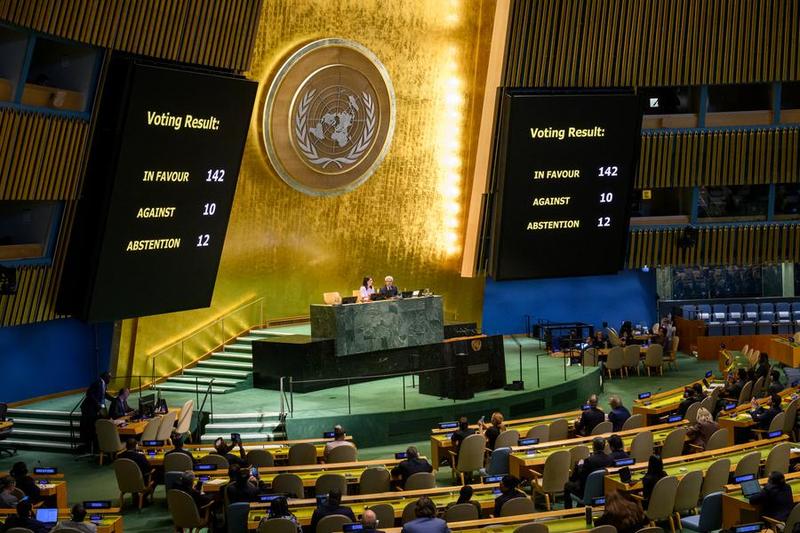International community should uphold the foundations of two-state solution: China Daily editorial


In a landmark shift in position, more Western countries — Australia, Canada, France, Portugal and the United Kingdom — have announced their recognition of Palestinian statehood. As they are traditional supporters of Israel and key allies of the United States that generally follow its line, this marks a significant moment for the international community's approach to the Israel-Palestine conflict.
Israeli Prime Minister Benjamin Netanyahu immediately denounced their decision, calling it "a huge reward for terrorism". But that is an attempt to move the goal posts. These nations join a growing list of countries — already more than two-thirds of United Nations members — that recognize a Palestinian state.
Obviously, the catalyst for the change in position of these countries is Israel's ongoing military operations in Gaza, which have exceeded the bounds of a legitimate response to Hamas' attacks on Israel on Oct 7, 2023.
Their decision is a clear indication that the international community is no longer willing to stand by as the humanitarian crisis in Gaza continues to worsen.
For decades, Western countries have tended to criticize Palestine while expressing sympathy for Israel. However, the latest round of conflict between Israel and Palestine and the dire humanitarian crisis in Gaza, coupled with accusations that Israel is guilty of genocide and ethnic cleansing, have shifted public opinion. Calls for recognizing the State of Palestine have grown louder, fueled by large-scale social movements, protests and rallies in support of the Palestinians.
The move by these Western countries highlights a growing rift between the US and its partners on the Palestinian question. This divergence was starkly illustrated on Thursday, when, at the 10,000th meeting of the UN Security Council, the US was the only member of the council to vote against a resolution demanding a ceasefire in Gaza, using its power of veto to block it.
The US is being left high and dry with Israel. The recognition of the State of Palestine by these Western nations reflects a growing consensus that resolving the Middle East conflict ultimately hinges on the implementation of the two-state solution.
On Friday, the UN General Assembly adopted a resolution allowing Palestine to participate in its 80th session, despite the US denying visas to some Palestinian representatives. This decision, supported by a significant majority of members, highlights the international community's commitment to ensuring Palestinian representation.
Israel's aggression, including its military operations in Syria, Lebanon and Iran, as well as recent attacks within Qatar, has left Israel increasingly isolated, and its reliance on the US for support has become ever more salient.
The US administration, which has been Israel's staunchest ally, faces a dilemma now: While it continues to provide substantial military support to Israel, there is a growing number of voices in the country denouncing Israel's actions as being detrimental to US interests and casting Israel as a strategic liability. The US should align its policies with the will of the international community and facilitate a resolution to the crisis that can produce lasting peace and stability.
As the UN marks its 80th anniversary, the upcoming General Assembly session holds extraordinary significance. It offers a crucial platform for addressing the urgent need for justice. The two-state solution is not an option but a necessity that demands action. The US must reevaluate its Middle East policies, fulfill its international responsibilities, and make decisions that honor both life and history.
China has always firmly supported the just cause of the Palestinian people to restore their legitimate national rights, and it remains committed to a ceasefire and the two-state solution.
It opposes any unilateral actions that erode the foundation of the two-state solution and calls for a more unified stance to promote an early, comprehensive, just and lasting resolution of the Palestinian question based on relevant UN resolutions.
As Chinese Foreign Minister Wang Yi reiterated on Friday, force cannot bring peace, and violence will not lead to security. Stressing that Israel has the right to establish a state, and so does Palestine, he rightly pointed out, "there should be no double standards on this".
































